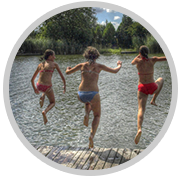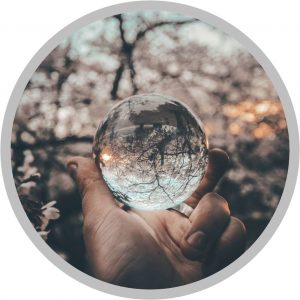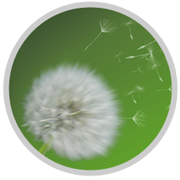Below is a preliminary overview of the topics, dates and some of the common course activities that are scheduled so far. More activities like tweetchats etc. might be added for some topics. In addition to common course activities you will have regular online meetings in your study groups (PBL groups). These meeting times will be decided by the group members together.
|
 Getting started Getting started
22 – 28 February
|
During this first week the focus is to familiarize yourself with the ONL learning spaces. You will be encouraged to share expectations, background knowledge, experience and practice and begin to build relationships.
 ONL help desk – drop-in video meeting times where one of the members of the course team will be waiting to help you in case you have questions about how to get started. The link to the helpdesk is: https://kau-se.zoom.us/my/onlhelpdesk enter ONL211 for admittance (only available during the times listed below – all times Central European Time – CET): ONL help desk – drop-in video meeting times where one of the members of the course team will be waiting to help you in case you have questions about how to get started. The link to the helpdesk is: https://kau-se.zoom.us/my/onlhelpdesk enter ONL211 for admittance (only available during the times listed below – all times Central European Time – CET):
-
Monday 22/2 10.00 – 11.00
-
Tuesday 23/2 11.00 – 12.00
- Wednesday 24/2 10.00 – 11.00
- Thursday 25/2 14.00 – 15.00
-
Friday 26/2 14.00 – 15.00
Introductory meetings: will be organised for institutional groups and for open learners. |
|
 Connecting Connecting
1 – 7 March
|
During this important week the focus is to to connect with peers and facilitators and to form groups.
 Connecting webinar: Monday 1 March 13:00 – 14:30 (CET) Connecting webinar: Monday 1 March 13:00 – 14:30 (CET)
Course welcoming and brief introduction – opportunity to meet and connect with your PBL group and facilitators.
Please use a head-set and your webcam!
|
|
 1. Online participation & digital literacies 1. Online participation & digital literacies
8 March – 21 March
|
During this topic we will explore together important literacies to survive and thrive in the digital age as learners and educators. We will also discuss online participation and your digital footprints. You will be encouraged to reflect on your digital presence and identity as well as your experience of digital consumption, communication, collaboration and creation.
 Webinar: Tuesday 9 March 12:00-13:00 (CET) – Special guest: David White Webinar: Tuesday 9 March 12:00-13:00 (CET) – Special guest: David White
 Tweetchat: Monday 15 March 15:00-16:00 (CET) – Special guest: David White Tweetchat: Monday 15 March 15:00-16:00 (CET) – Special guest: David White
|
|
 2. Open Learning – sharing and openness 2. Open Learning – sharing and openness
22 March – 4 April (Please note: 28 Mar Europe moves clocks forward 1 hour to CEST)
|
In this topic we will explore the benefits and challenges of openness in education. We will look at issues around copyright and in particular the open licensing of content (Creative Commons) and how this opens up new opportunities for collaborative learning and development. Sharing and reusing OER (Open Educational Resources) and the consequent development of OEP (Open Educational Practices) will also be examined.
 Webinar: Tuesday, 23 March 11:00-12:00 (CET) – Special guest: Maha Bali Webinar: Tuesday, 23 March 11:00-12:00 (CET) – Special guest: Maha Bali
 Discussion webinar: Wednesday, 31 March 11:00-12:00 (CEST) Discussion webinar: Wednesday, 31 March 11:00-12:00 (CEST)
|
|
 Reflection week Reflection week
5 – 11 April
|
We’re half-way through the course and this week gives you time to reflect, catch up and consolidate what you have learned so far.
|
|
 3. Learning in communities – networked collaborative learning 3. Learning in communities – networked collaborative learning
12 – 25 April
|
In this third topic, we will explore aspects of collaborative learning in relation to networked online spaces for learning. To interact and learn together with peers in different formats have become an integral part of student centered education. Technology offers new possibilities for interaction and forming new kinds of social networks, including learners as well as facilitators and experts – but also offers challenges, such as keeping focus on learning processes, not tools, in online environments. You will be encouraged to reflect on the meaning of networked collaborative learning and the development of learning communities in relation to PBL and building personal learning networks and environments for peer support and your informal learning.
 Webinar: Tuesday 13 April 11:00-12:00 (CEST) – Special guest: Kay Oddone Webinar: Tuesday 13 April 11:00-12:00 (CEST) – Special guest: Kay Oddone
 Tweetchat : Thursday 22 April 11:00-12:00 (CEST) Special guest: Kay Oddone Tweetchat : Thursday 22 April 11:00-12:00 (CEST) Special guest: Kay Oddone
|
|
 4. Design for online and blended learning 4. Design for online and blended learning
26 April – 9 May
|
For this topic we turn the focus from participation to design for learning, including scaffolding and facilitation. You will look at different pedagogical aspects to be considered when creating good learning environments using the Community of Inquiry and other frameworks. You will also discuss the concept blended learning and how to achieve the right balance for your course.
 Webinar: Wednesday 28 April 16:00-17:00 (CEST) – Special guest: Dr. Marti Cleveland-Innes Webinar: Wednesday 28 April 16:00-17:00 (CEST) – Special guest: Dr. Marti Cleveland-Innes
 Tweetchat : Wednesday 5 May 11:00-12:00 (CEST) Tweetchat : Wednesday 5 May 11:00-12:00 (CEST)
|
|
 5. Lessons learnt – future practice 5. Lessons learnt – future practice
10 – 16 May
|
Topic 5: Lessons learnt – future practice
During our concluding weeks, peers and facilitators will share and reflect on learning experiences from ONL and look ahead to how this feeds into our present and future practice. What effect has the learning experience from this course had on your development of personal learning networks and your own professional practice? What were the benefits and what were the challenges? What are the next steps?
 Final webinar: Wednesday 12 May, 11:00-12:00 (CEST) Final webinar: Wednesday 12 May, 11:00-12:00 (CEST)
|
Please check your local time:
http://www.timeanddate.com/time/map/